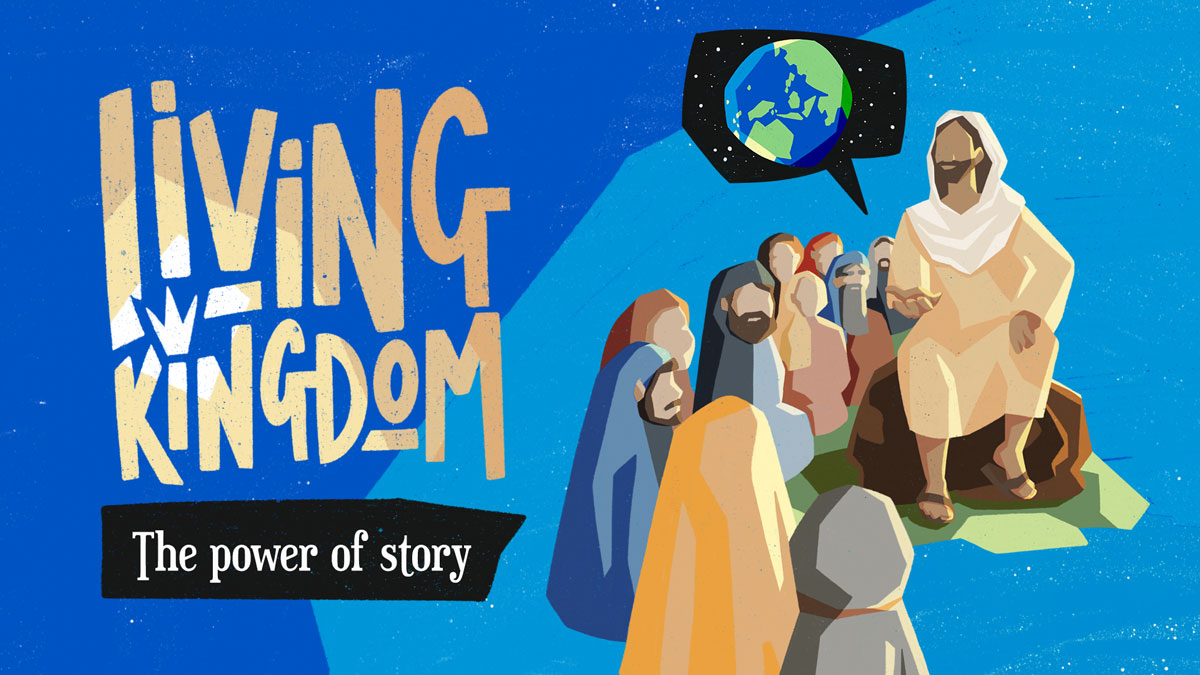Why did Jesus use parables?
“Because the knowledge of the Kingdom of heaven has been given to you, but not to them.” Matthew 13:11
Story changed my life. No exaggeration. Telling stories is now my life work and passion.
While studying for my master’s degree, I pursued this fundamental idea: story has the power to change people. That’s right. Stories have life-changing power. Stories hold influence, a power beyond the sum of their parts. There’s a reason I believe this. A number of reasons perhaps. God has shown me glimpses of this idea through the years, and I have sought out theory and evidence to back up and understand what I had experienced.
Sitting in a church camp, my wife and I wept alongside someone who was bravely sharing their story. That weekend we heard preaching, yes, but what changed us were the stories: personal, heartfelt testimonies of lives changed by God’s power. We heard stories we related to, stories that bumped us out of our comfort zone and stories that caused us to reassess our lives and choices. This started us on a journey of re-engagement with church and opened a pathway to healing and ministry that changed our lives and the lives of others.
I would go on to learn that the emphasis on story that weekend was intentional and I would grow and be discipled in my understanding of the power of stories to change opinions and challenge established ideas.
The stories my wife told me of her trauma and experiences before she met me helped me to peel back the layers and understand her in a deeper way. Those stories paved the way for empathy and understanding to be a larger, more integral part of my dealings with people. I began to leave behind some of my own judgement and impatience as I sought instead to discover stories first. [pullquote]
Stories were working on me before I even knew they were. As a child, stories inspired me to see what the world could be. Some days they were an escape from the painful things: bullying, fear and inadequacy. Some days, they translated me to a higher, more joyous plane; I would look up and the hours would have flown by as I lived someone else’s story; revelling in the joy of creativity, the rhythm and roll of the words rolling through my imagination.
Stories helped me make sense of the world. As a kid, stories helped me to love and live outside of myself; to feel and experience and walk in the shoes of others.
Testimonies and missionary stories on Sabbath afternoons taught me the power of conviction, inspired me to be used by God and see where that would take me. And the stories of the Bible and the parables of Jesus are no exception.
We should not be surprised that our Creator—described as the Author and Completer of our faith (Hebrews 12:2)—understands how our brains are wired to react to story.
John weaves two stories into one as he opens his gospel. “In the beginning . . .” he starts, filling our minds with images of creation—”was the Word . . .”
With just a few words, John points us back to the great story of Creation, he proclaims Jesus as Creator, tying Him into the great narrative of God through history. He points us to the power of words and the Word, His Word.
The Word was with God and the Word was God. God spoke the world into existence. There is no denying words have power but when we seek meaning and place words into story, they transcend the sum of their parts.
Story is one of the most powerful and potent arrangements of words you can have. People love to quote the statistic that you’re 22 times more likely to remember a story than a fact. Marketers and advertisers have cottoned on to this fact. Concepts like developing a story brand, building customer avatars and selling products using narrative are well established in the industry.
The Macquarie dictionary defines a parable as “a short allegorical story, designed to convey some truth or moral lesson”.
There are ancient precedents for this. Ancient Greek teachers and rhetoricians often utilised paraboles—short stories to illustrate a point. The Mishnah, a preserved collection of early rabbinical oral history, is filled with parables and there are examples of parables in the Old Testament (Judges 9:7-15, 2 Samuel 12), known in Hebrew as a mashal, a technique that is thought to have been common at the time of Jesus.
So when the disciples came to Jesus and asked “Why do you speak to the people in parables?”(Matthew 13), they should not have been shocked or surprised by His methods. It seems they were really asking, ”why don’t you explain everything you teach?” or perhaps, “why are your stories sometimes hard to understand?”.
Jesus’ explanation seems to support this (v11–13): “He replied, “Because the knowledge of the secrets of the kingdom of heaven has been given to you, but not to them. Whoever has will be given more, and they will have an abundance. Whoever does not have, even what they have will be taken from them. This is why I speak to them in parables:
‘Though seeing, they do not see;
though hearing, they do not hear or understand.’”
He did not want to make it easy to understand.
Part of story’s power is that those who truly seek to understand it—who sit with it and let it wash over them, who spend time with it—will find its meaning and its core. If Jesus had straight-up said, as a command or a statement, what He truly taught, He might have been killed a lot earlier than He was. Being prescriptive or issuing commandments would have left less room for nuance or application across a number of layers of meaning.
Jesus’ parables often came in answer to a challenge. The brilliance of these simple stories was that Jesus provided an answer that seemed to address the question but didn’t allow His opponents to pin Him down in the traps they had devised.
Jesus’ stories are not just clever teaching aids. They are tangible, understandable portraits of what the kingdom should look like. They tackle problems or failings of human nature. They point to what His Kingdom Come should look like on Earth.
Jesus’ stories are universal. Jesus’ stories are simple but contain immense depth of meaning.
Jesus’ stories are earthy. Jesus used everyday examples; things from farm and village life, events like weddings, that were familiar to everyone He was speaking to. They could relate and understand. And people from all cultures across the past 2000 years have been able to connect to the agrarian and home-based situations Jesus described.
The Word of God spoke all things into existence and when He shares His parables, they are living things. There is power and urgency in His words. They bring the kingdom to life, they are dynamic, speaking specifics into lives of those who hear (or read).
Jesus left us a great gift; not only the Holy Spirit, but these teachings that can change and challenge our lives.
When the Creator of the universe tells a story about His kingdom, those words have life, power and permanency.
As we spend time with the parables of Jesus, we are invited to examine our own lives and actions and how they measure up with the kingdom Jesus invites us to hold citizenship in. The stories will hopefully draw out life-changing and challenging lessons. For the next year-and-a-half we will journey through Jesus’ parables to rediscover where we fit in Jesus’ living kingdom.







